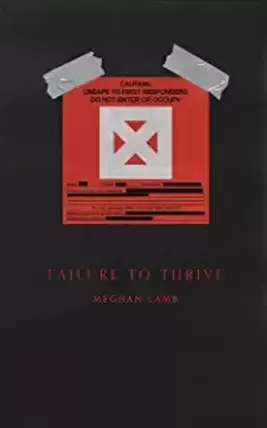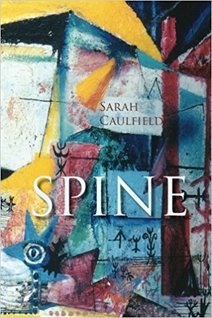“Failure to thrive” is the medical term used for the slow development of an infant due to a lack of nutrients. Babies who receive this diagnosis will often have developmental delays later in life. This condition can be the result of an internal, chromosomal issue or the environment around the child. In either case, death is imminent unless there is interference.
Meghan Lamb’s debut novel, Failure to Thrive captures that slow process and the inability to thrive in settings that produce nothing but death and decay. The story takes place in a Pennsylvania coal town poisoned by an underground fire. Divided into three sections, it centers around three families: a young couple struggling to raise a neurodivergent daughter, a woman caring for a dying parent and dealing with the after-effects of her past substance abuse, and a young man dealing with memory loss after a catastrophic accident. Lamb uses genre-bending prose, vivid imagery, and subtle characterization to highlight the major themes of her novel.
0 Comments
After seeking help from numerous doctors and specialists, Esme Weijun Wang couldn’t shake the feeling that something was being missed.
Finally, there was a breakthrough during her college years when she was first diagnosed as bipolar the summer before she left for New Haven. And then when her medical records were sent to Stanford she explains, “In the referral authorization itself, I was listed as having two diagnoses: schizoaffective disorder, bipolar type and idiopathic peripheral neuropathy. There was no mention of fibromyalgia, complex PTSD, dysautonomia/POTS, chronic Lyme disease, or any of the other diagnoses I’d received over the years” (185). Esme Weijun Wang’s 2019 essay collection The Collected Schizophrenias is an engaging journey that deals with a serious topic. The book does a thorough job of educating the reader in this area of health that is commonly misunderstood. The relationship between the author and the text is beautifully captured by including both clinical information and her own personal struggles and triumphs.
Sarah Caulfield's words dig beneath our flesh and go straight to the bone in her collection of poetry, SPINE (2017). Caulfield’s first book beautifully weaves together powerful images of blood and bone, plus themes of religion, chronic illness, and guilt, pulling on the reader's heartstrings and commanding empathy. The repeated themes make it clear that these topics are very important to Caulfield, and are ones often swept under the rug instead of spoken about in society.
|
Archives
July 2024
Categories
All
|
|
Glassworks is a publication of Rowan University's Master of Arts in Writing 260 Victoria Street • Glassboro, New Jersey 08028 [email protected] |
All Content on this Site (c) 2024 Glassworks
|




 RSS Feed
RSS Feed
